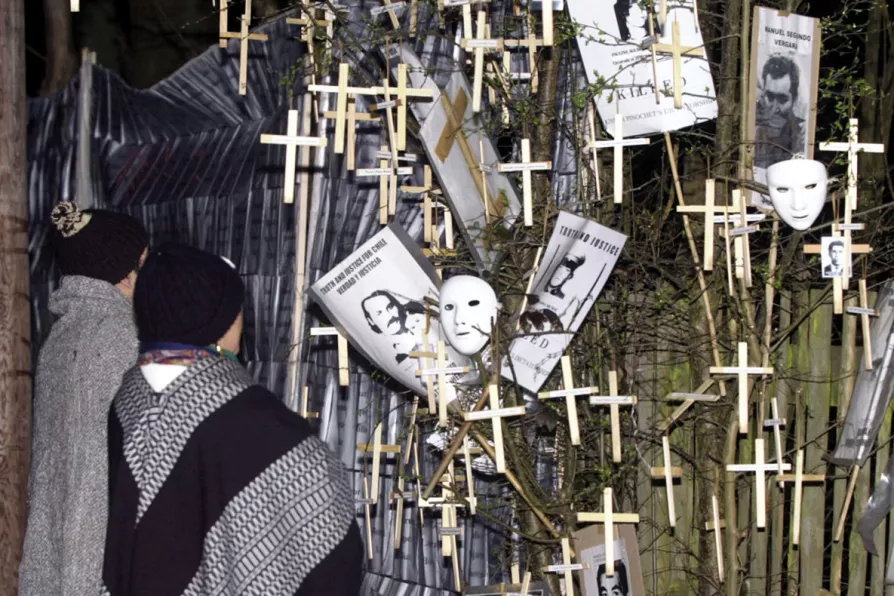VIJAY PRASHAD details how US support for Syrian President Ahmad al-Sharaa allowed him to break the resistance of the autonomous Syrian Democratic Forces (SDF)

 Demonstrators at Wentworth, Surrey, where Pinochet was temporarily housed, look at photos and crosses bearing the names of his victims, 2000
Demonstrators at Wentworth, Surrey, where Pinochet was temporarily housed, look at photos and crosses bearing the names of his victims, 2000
ON “the other 9/11,” in 1973, General Augusto Pinochet led a coup against the democratically elected government of Chile, overthrew it, and started a campaign of mass imprisonment, murder and torture of his political opponents.
While the so-called “free world” was silent on this (where they had not already actively encouraged the coup), the international labour movement took a leading role in trying to rescue Pinochet’s targets.
In Britain, Edward Heath led a Tory government when the coup took place, but he was replaced in 1974 by Harold Wilson’s Labour government.

KATE CLARK recalls an occasion when the president of the Scottish National Union of Mineworkers might just have saved a Chilean prisoner’s life

RON JACOBS welcomes an investigation of the murders of US leftist activists that tells the story of a solidarity movement in Chile












